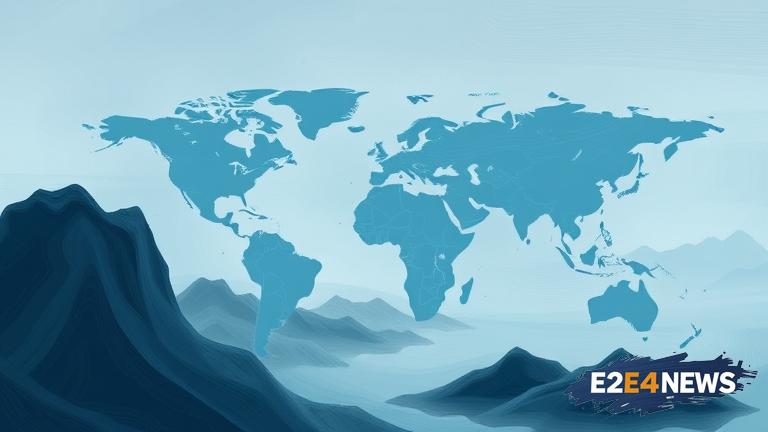The global economy is currently experiencing a period of uncertainty, with rising inflation and interest rates posing significant challenges to economic growth. The COVID-19 pandemic has had a lasting impact on the global economy, with many countries still struggling to recover. The war in Ukraine has also had a significant impact on global trade, with many countries imposing sanctions on Russia. The rise of inflation has been a major concern for many countries, with the cost of living increasing significantly. Central banks around the world have been raising interest rates in an effort to combat inflation, but this has also had a negative impact on economic growth. The US Federal Reserve has been at the forefront of this effort, with multiple rate hikes in recent months. The European Central Bank has also raised interest rates, in an effort to combat inflation in the eurozone. The impact of these rate hikes has been felt around the world, with many countries experiencing a slowdown in economic growth. The global trade landscape is also changing, with many countries imposing tariffs and other trade restrictions. The US-China trade war has been a major factor in this, with both countries imposing significant tariffs on each other’s goods. The impact of this trade war has been felt around the world, with many countries experiencing a decline in trade. The rise of protectionism has also been a concern, with many countries imposing trade restrictions in an effort to protect domestic industries. The World Trade Organization has been working to promote free trade and reduce trade tensions, but progress has been slow. The global economy is also facing significant challenges from climate change, with many countries experiencing extreme weather events. The cost of climate change is significant, with many countries experiencing significant economic losses. The transition to a low-carbon economy is underway, but it will require significant investment and effort. Many countries are working to reduce their carbon emissions, but progress has been slow. The use of renewable energy is increasing, but it still accounts for a relatively small percentage of global energy production. The global economy is also facing significant challenges from technological change, with many industries experiencing significant disruption. The rise of artificial intelligence and automation has been a major factor in this, with many jobs at risk of being automated. The impact of technological change has been felt around the world, with many countries experiencing significant job losses. The global economy is also facing significant challenges from demographic change, with many countries experiencing significant population aging. The impact of population aging has been felt around the world, with many countries experiencing significant increases in healthcare costs. The global economy is also facing significant challenges from geopolitical tensions, with many countries experiencing significant conflict and instability. The impact of geopolitical tensions has been felt around the world, with many countries experiencing significant economic losses. In conclusion, the global economy is facing significant challenges, including rising inflation and interest rates, trade tensions, climate change, technological change, demographic change, and geopolitical tensions. These challenges will require significant effort and investment to overcome, but the potential rewards are significant.
